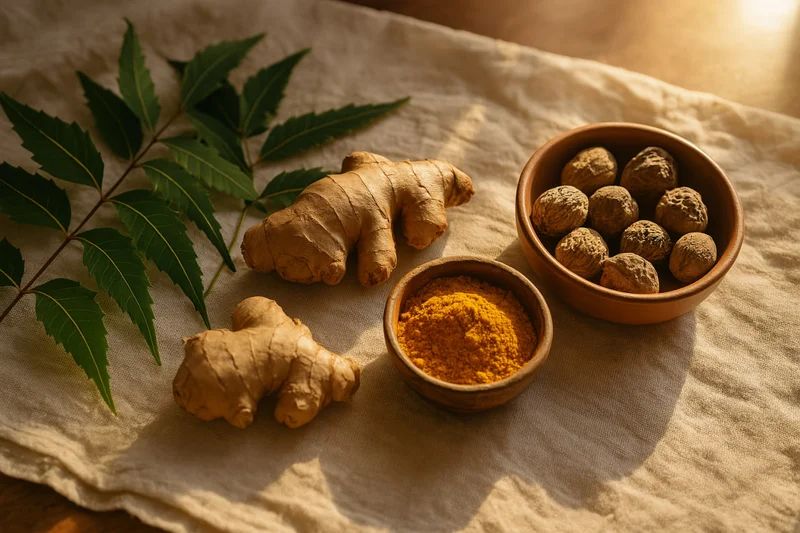Appendix Treatment in Ayurveda: A Natural Path to Healing

Appendicitis, or inflammation of the appendix, is a condition that often leads to severe abdominal pain, nausea, and digestive discomfort. While modern medicine frequently recommends surgery for acute cases, Ayurveda provides alternative treatments for managing early-stage or chronic appendicitis. Ayurvedic treatments focus on balancing the doshas, reducing inflammation, and improving overall digestive health. In this article, we’ll explore the Ayurvedic approach to appendix treatment, including remedies, dietary recommendations, and lifestyle adjustments.
What is Appendicitis?
The appendix is a small, finger-shaped pouch attached to the large intestine. Inflammation of this organ, known as appendicitis, is usually caused by blockages, infections, or dietary issues. Symptoms include:
-
Severe abdominal pain, especially in the lower right side
-
Nausea and vomiting
-
Loss of appetite
-
Fever
-
Digestive issues like bloating or constipation
From an Ayurvedic perspective, appendicitis is viewed as an imbalance of Pitta and Vata doshas, leading to inflammation and discomfort in the digestive tract.
Don't wait or self medicate. Start chat with Doctor NOW
Ayurvedic Remedies for Appendix Treatment
Ayurveda offers a variety of natural remedies that help alleviate inflammation, reduce pain, and restore digestive harmony:
1. Herbal Remedies
-
Neem (Azadirachta indica): Known for its anti-inflammatory and antibacterial properties, neem helps reduce infection and inflammation in the appendix.
-
Ginger (Zingiber officinale): Ginger’s anti-inflammatory and digestive properties ease abdominal pain and improve digestion.
-
Turmeric (Curcuma longa): The curcumin in turmeric acts as a powerful anti-inflammatory agent, reducing swelling and promoting healing.
-
Triphala: A combination of three fruits—Amalaki, Haritaki, and Bibhitaki—Triphala supports bowel movements, reducing pressure on the appendix.
2. Ayurvedic Decoctions
Herbal decoctions prepared with ingredients like cumin, coriander, and fennel seeds can soothe the digestive system and alleviate symptoms of appendicitis.
3. Panchakarma Therapies
Panchakarma is a detoxification process that helps balance doshas and eliminate toxins:
-
Virechana (Purgation Therapy): Clears excess Pitta from the digestive system, reducing inflammation.
-
Basti (Medicated Enema): Helps balance Vata dosha and relieves constipation or bloating associated with appendicitis.
Dietary Recommendations for Appendicitis
Ayurveda emphasizes a light and easily digestible diet to support the healing process. Recommended foods include:
-
Vegetable Soups: Warm, cooked vegetables like carrots, spinach, and zucchini help reduce inflammation.
-
Whole Grains: Easily digestible grains like rice and quinoa provide energy without burdening the digestive system.
-
Herbal Teas: Teas made from ginger, fennel, or cumin seeds soothe the stomach and improve digestion.
-
Avoid: Spicy, oily, and processed foods that can aggravate Pitta and Vata doshas.
Lifestyle Adjustments for Appendicitis
In addition to herbal remedies and dietary changes, adopting healthy habits can accelerate healing:
-
Hydration: Drink plenty of warm water to flush out toxins and maintain hydration.
-
Yoga and Pranayama: Gentle yoga poses and breathing exercises like Nadi Shodhana help balance the doshas and improve circulation.
-
Rest: Adequate rest allows the body to heal and recover from inflammation.
Benefits of Ayurvedic Treatment for Appendicitis
-
Non-Invasive: Ayurvedic treatments provide a natural, non-surgical alternative for managing mild or early-stage appendicitis.
-
Holistic Healing: Focuses on restoring balance in the entire digestive system rather than addressing symptoms alone.
-
Minimal Side Effects: Uses natural ingredients and therapies that are gentle on the body.
Precautions and Considerations
-
Consult an Ayurvedic Practitioner: Severe or acute appendicitis may require immediate surgical intervention. Always consult a healthcare professional to determine the best course of action.
-
Monitor Symptoms: If symptoms worsen or include high fever, severe pain, or vomiting, seek emergency medical care.
-
Combine Approaches: Ayurvedic treatments can complement modern medical care for optimal results.
Conclusion
Ayurvedic treatment for appendicitis offers a holistic and natural approach to managing symptoms and improving digestive health. By incorporating herbal remedies, dietary changes, and detoxification therapies, Ayurveda addresses the root cause of the condition and promotes long-term wellness. However, it is crucial to consult a qualified practitioner for a personalized treatment plan, especially in severe cases. Experience the healing power of Ayurveda and find relief from appendicitis naturally!
Got any more questions?
Ask Ayurvedic doctor a question and get a consultation online on the problem of your concern in a free or paid mode.
More than 2,000 experienced doctors work and wait for your questions on our site and help users to solve their health problems every day.

